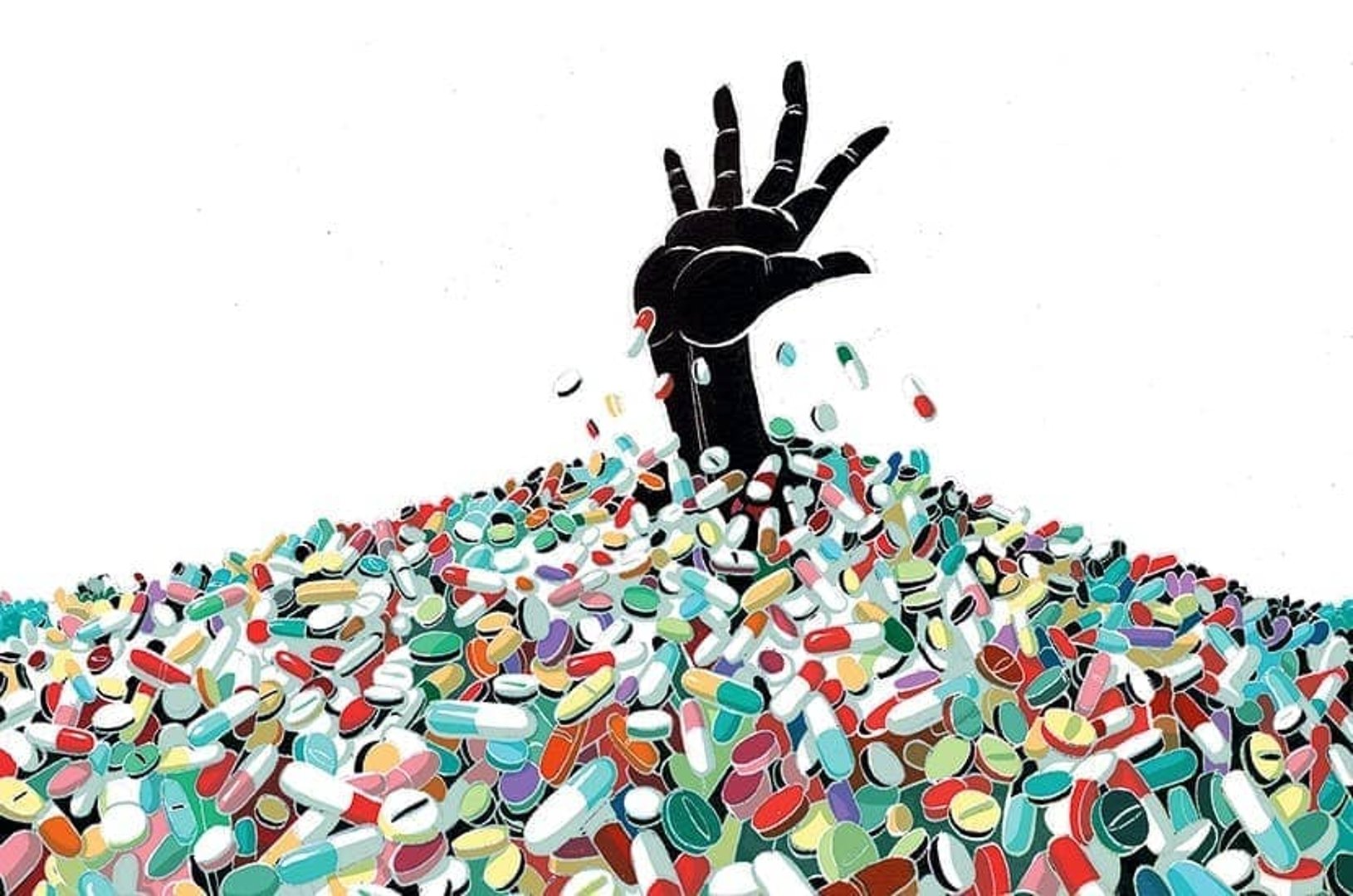Stay in the know with the latest on our fight against the legalization of marijuana
Have an article that you would like us to post? Share it on our Facebook page!
The link between drugs, terrorism and mental illness→
/Rod Liddle once actually said to me the immortal words ‘You were right and I was wrong’ at a Spectator summer party. This is a moment I shall treasure till the hour of my death. But even so, I was disappointed. For the subject was only Theresa May. I had predicted she would be a terrible premier. Rod had believed she would be good at the job. A year later, it was obvious who was correct. For one brief shining moment I had hoped that Rod had changed his mind about something much more important. I wish he and a lot of conservatives would shift their opinions about the role of mental illness in rampage killing all over the world. And, once they have done that, I wish they would be willing to examine the role of certain illegal and legal drugs in creating such mental illness.
The trouble with such killings, on both sides of the Atlantic, is that so many people have stakes in attributing or denying blame for them. Those who believe that marijuana is harmless dislike it when I draw attention to just how many such killers (about 90 per cent of them, from Lee Rigby’s killers in London to those responsible for carnage in Nice and Sousse) have been using that drug. The ‘steroid community’ is also highly sensitive about suggestions that these chemicals might be associated with serious violence. But the Norway mass-murderer Anders Breivik, the perpetrator of the New Zealand mosque massacre Brenton Tarrant, the Orlando mass killer Omar Mateen and the London Bridge killers in this country were all steroid users. So was the unquestionably unpolitical rampage killer Raoul Moat, who brought terror to Northumbria in 2010 before killing himself. As for antidepressants, anyone who suggests that these medications may be less than perfect, or that they have unintended consequences, faces a howl of fury from those who take them, and the immense power of the companies which make them.
The trouble with mass killings is that so many people have stakes in attributing or denying blame for them
In the USA, gun-control campaigners want to blame such murders solely on lax gun laws, so they can tighten those laws. In Europe, where most nations think they have guns firmly under control, conservatives like to pin the blame on Islamists. And left-wingers, for comparable reasons, like to implicate ‘right wing extremism’ wherever they can, as it is a problem they are anxious to emphasise.
Well, I think the whole point of journalists is to resist the influence of lobbies and factions of this kind. As a former fanatic and follower of the homicidal creed of Bolshevism I did nothing more violent than the occasional rowdy demonstration. I tend to think that you need much more than a fanatical ideology to cross the well-defined frontier beyond which you might be ready to use gun, knife or bomb against soft defenceless flesh. You may point in reply to the chilly, clear-headed murders and torture done by the Provisional IRA. These were very cruel men. But they were wickedly rational and they wanted to live to enjoy the fruits of their victory. They did not cry out slogans as they killed. They were seldom caught. They were extremely good at covering their tracks and avoiding capture. One of their main aims was to secure an amnesty for those of their number who were imprisoned. And how right they were to assume that their atrocities would eventually force the British government to give way.
But the wild killings of which I write are not like that. In last week’s Spectator, Rod, writing about Thomas Mair, killer of Jo Cox MP, declared that ‘nobody suggested Mair was simply mad’. Well, he was wrong about that. I did. Both at the time of Jo Cox’s murder and later, I repeatedly cited evidence that Mair, a man who washed himself with Brillo pads, was significantly unhinged. Though Mair’s trial weirdly did not consider this aspect of his life, there is a good deal of circumstantial evidence that Mair had been mentally unwell and had probably been prescribed mind-altering medication. His crime was utterly irrational. If Mair had a political cause, as Rod and the British liberal establishment both believe, then he did that cause terrible harm by killing a beloved young wife and mother. He would have had to have been very stupid, or irrational, not to have known that. What sort of political motivation impels a person to damage his own cause?
The next thing I have to contend with, in making this case, is the claim that I am somehow trying to exonerate these killers. I have no such aim or desire. It may be that some of them are better being confined for life in secure hospitals than in prisons, but I want them to be locked up as much as anyone else and more than most. In any given year in this country there are random killings of innocent people by total strangers. The number of these ghastly tragedies varies quite widely but is generally at least in double figures. This is a highly sensitive subject and those who raise it can nowadays expect to be accused of stigmatising the mentally ill. Once again, this is not my aim. I long for our country to provide the mentally ill with the residential hospital care so many of them badly need. I just seek a reasoned and effective response to what seems to me to be a new and unexamined danger.
The facts about these events are often quite difficult to establish. Sometimes they emerge long afterwards. For example, coverage of the 2018 massacre at the Marjory Stoneman Douglas High School in Parkland, Florida made almost no mention of cannabis or medication. But it is now clear that the culprit, Nikolas Cruz, was a heavy user of cannabis or why else did he say at his trial last week that the United States would ‘do better if everyone would stop smoking marijuana’? He should know.
I only ask one thing from Rod, and from everybody else. It is that the past drug use of every person convicted of a violent crime should be properly investigated, to see if there is, as I suspect, a meaningful correlation between the two. And we should grasp that crazy people often adopt political causes to dignify themselves, but they are still crazy. Never forget that the supposed Islamist Muhaydin Mire, another heavy marijuana user who went berserk with a knife at Leytonstone Tube station, genuinely and literally believed that Anthony Blair was his guardian angel.
Risks of cannabis use for mental health treatment outweigh benefits→
/New study shows evidence of positive outcomes is scarce while symptoms can be exacerbated
Read MoreYoung Marijuana Users Face Psychosis Risk→
/A large study of teens shows that "in adolescents, cannabis use is harmful" with respect to psychosis risk, says study author Patricia J. Conrod, PhD, a professor of psychiatry at the University of Montreal.
Read MoreAlabama’s dangerously flawed medical marijuana proposal→
/Marijuana’s ability to cause psychosis is one of its longest-known and best-documented side effects.
Read MoreMental illness implications of cannabis use must not be ignored→
/For California voters, recreational marijuana legalization was sold as a win-win-win: billions of dollars in new tax revenues, a chance for law enforcement to focus on more serious crimes, and the societal acceptance of a relatively low-risk alternative to alcohol.
But as the state stumbles through its second year of fully legalized cannabis, the reality appears to be more lose-lose-lose.
Read MoreMarijuana, Mental Illness, and Violence
/Almost everything you think you know about the health effects of cannabis, almost everything advocates and the media have told you for a generation, is wrong.
They’ve told you marijuana has many different medical uses. In reality marijuana and THC, its active ingredient, have been shown to work only in a few narrow conditions. They are most commonly prescribed for pain relief. But they are rarely tested against other pain relief drugs like ibuprofen—and in July, a large four-year study of patients with chronic pain in Australia showed cannabis use was associated with greater pain over time.
Read MoreSmoking cannabis DOES make people more violent: Project confirms for the first time that using the drug is the cause of crimes→
/Cannabis users more likely to commit violent crimes, research has shown
Study found there was a ‘more constant relationship’ between cannabis and violence than between alcohol or cocaine use and violence
More than 20 US states have legalised cannabis for medical purposes









